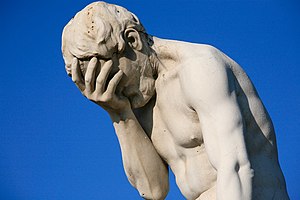This was just posted at FEE today. I thought it was great. It's longish. And there are too many parts I'd love to quote. Here's a tidbit:
https://fee.org/articles/how-nationa...ch-revolution/Again we must ask, as Constant did two centuries ago: what went so wrong? It all goes back to the reliance of the original liberals on the people’s state. Locke’s notion of a hireling, representative government simply misunderstood the nature of the state. Legal plunder is not a “perversion” of the state, but its actual, primary function. As liberals came to discover through their pursuit of “legal plunder” theory, the state is and has always been a parasitic protection racket. It doesn’t tax in order to protect, but “protects” in order to tax. Like in the Twilight Zone episode “To Serve Man,” the state’s “social contract” is not a service agreement, but a cookbook. “To protect and serve,” indeed, Mr. Policeman writing me a $200 ticket.
Site Information
About Us
- RonPaulForums.com is an independent grassroots outfit not officially connected to Ron Paul but dedicated to his mission. For more information see our Mission Statement.





 Reply With Quote
Reply With Quote


Connect With Us